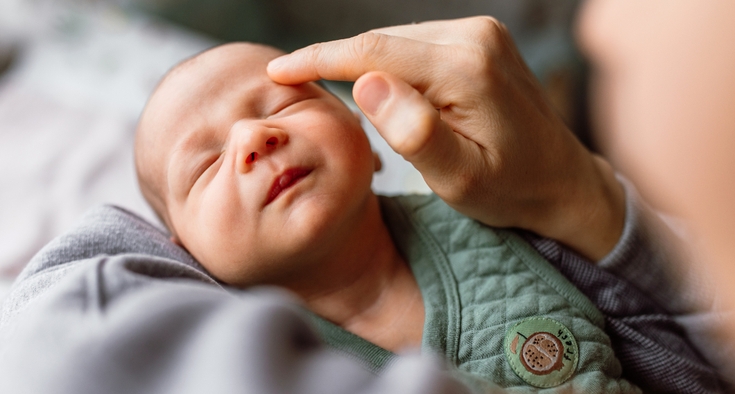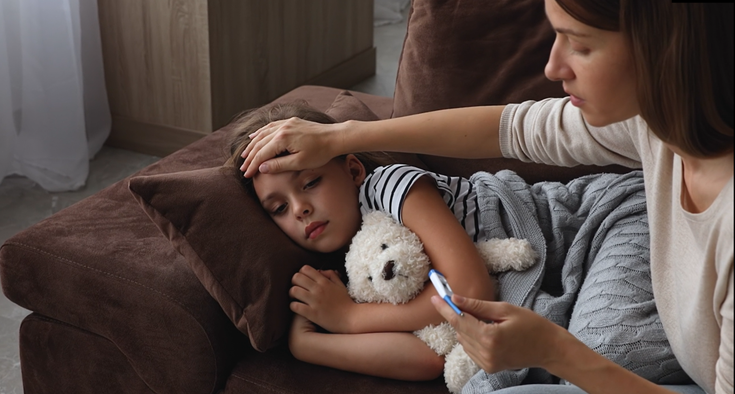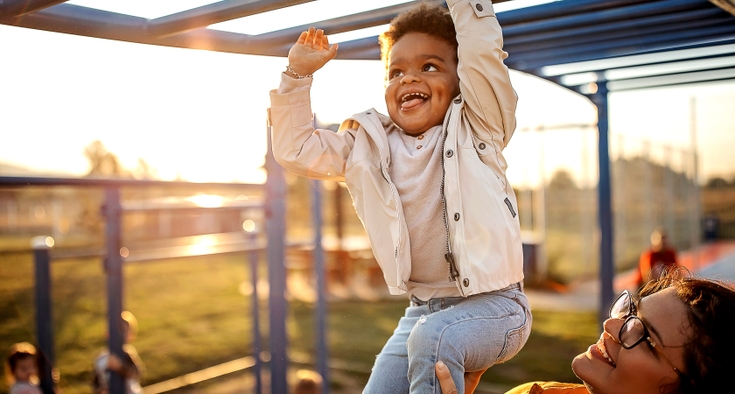Vaccination rates for childhood illnesses such as measles, polio and whooping cough started declining before the COVID pandemic, and continue to fall due to changing attitudes toward vaccines, according to new data from the Centers for Disease Control and Prevention.
In the U.S. babies began getting the vaccines in the 1990s. Before the pandemic, more than 95% of kindergartners in both North Carolina and South Carolina were vaccinated against measles, newly published data shows. Now each state has dropped closer to 90%, which is similar to the average decline nationwide since 2017. Experts say that once measles immunization rates drop below 90%, outbreaks are harder to keep in check.
Although childhood vaccination rates for hepatitis B appear steady, parents often raise concerns about whether this immunization is necessary and how it may impact their baby because the first dose is recommended to newborns within their first 24 hours, said Dr. Amra Zuzo, a pediatrician at Novant Health Pediatrics Berewick in Charlotte.
Here, Zuzo discusses common questions parents have about the vaccination.
Provide the healthiest start possible for your child.
Frequently asked questions about the hepatitis B vaccine
How common is hepatitis B and how do people acquire it?

More than 250 million people in the world have hepatitis B, making it one of the most common blood-borne infections. In the U.S., some 2 million people have it, a relatively low number compared to other countries. That’s due to long-standing recommendations in the U.S. that children be vaccinated as babies, and requirements by most states that children be immunized to enroll in daycare or school.
Many people think of hepatitis B, also called HBV, as a sexually transmitted disease or one associated with illicit drug use. However, there are other ways people can become infected, including from an infected mother to her baby, whether the delivery is through vaginal birth or C-section.
Babies can also develop hepatitis B infections through contact with another infected person’s bodily fluids, such as another family member’s blood touching a break in the baby’s skin or their nose, mouth or eyes. However, hepatitis B generally is not spread through casual contact.
People such as healthcare workers, family members of an infected person, and those traveling to countries with high rates of the disease may also be at risk of contracting the illness through exposure to blood or bodily fluids.
Some studies have shown as many as half of people who have the disease don’t know that they have it, which can contribute to its spread, which is why testing and prevention are vital.
How do I protect my child against hepatitis B?
The World Health Organization, the CDC, the American Academy of Pediatrics and other medical associations all recommend babies receive their first dose of the hepatitis B vaccine as newborns within 12 to 24 hours of being born.
That initial shot is the first of two to three vaccines recommended for children in their first 6 months of life to offer long-term protection.
What’s the risk if my baby does not get a hepatitis B vaccine?
When babies become infected with hepatitis B, they can suffer serious liver damage and have about a 90% chance of developing a lifelong, chronic infection, according to the CDC.
What should I know about the transmission of hepatitis B from mother to baby?
As providers, there are several steps we take to lower the risk of hepatitis B infection when there’s a baby on the way. The first step is testing the mother. If the mother’s tests show the presence of an infection, there are steps we can take to prevent transmission, including giving the baby a vaccine and anti-viral medication right when they’re born.
This significantly reduces the risk that the baby will develop an infection. In fact, the CDC reports that when babies become infected with hepatitis B, they have about a 90% chance of developing a lifelong, chronic infection.
Why not just test the mother and skip the vaccine when the test is negative?
Best doctors. Amazing nurses. Remarkable care.
Unfortunately, testing the mother is not all we need to do. If a mother tests negative for hepatitis B, this is not a 100% guarantee that the mother is not infected. In some cases, hepatitis B tests can fail to pick up on infection – often because the infection is new – and this can lead to a false-negative result.
Research shows the most effective way to protect all babies against the virus is to vaccinate every newborn soon after birth, so they are protected even in cases where a mother was infected and didn’t know, or didn’t test positive. Studies show this is a safe and effective way to offer almost total protection against the disease.
Is it safe to give a newborn baby a hepatitis B vaccine?
The bottom line is that babies are born without an immune system, and we need to start building it. One way we do that is with a hepatitis B vaccine for all medically stable newborns who are not underweight. Another major way is through breastfeeding, which benefits a baby’s immune system in a number of ways.
A lot of parents have questions about vaccine safety. It’s important for parents to understand the most common side effects, which are pain, redness or swelling at the injection site, fever, fatigue, irritability, crying, and in some cases, vomiting or diarrhea.
When I talk to parents about how vaccines are made and the way the scientific method works, people tend to feel better about it. It’s important to remember that to develop a vaccine, drug companies must prove its safety and efficacy. The experiments that go into testing vaccines must be reproduced many times for safety and efficacy to be proven. Obviously, companies are do make money from developing vaccines, but they’re not going to invest their money in a medication or vaccine unless science proves it works.
What else should parents consider when making this decision?
We encourage parents to be honest about their questions and anxieties. And if we don’t have an answer, we’ll be honest. We just hope families will communicate.
I speak with some parents who opt not to vaccinate at birth and want to wait until the child is a bit older. They may believe the risk is low because they do not send their child to daycare or school. However, the child is going to the playground, to birthday parties or play dates, and these are the types of things we’d discuss to help the family make the most informed decision possible.












